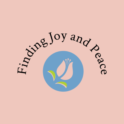The other day I saw an elderly widow out walking. I ran out to meet her and told her that I had missed her, and asked if I could bring some dinner over and visit with her. She instantly became nervous. I assumed she was worried that I had not been vaccinated, so I assured her that I had.
She then proceeded to explain that she was worried because she had not been vaccinated, and did not intend to be. She assumed I would not want to visit her under those conditions. I validated her feelings and told her it didn’t matter to me whether she had been vaccinated or not, my interest and concern was for her as an individual—vaccinated or not. I have had other similar experiences recently. They have caused me to reflect and wonder if others are afraid of not being accepted, welcomed, and loved because of their personal opinions and beliefs?
I see so much division in families, neighborhoods and in the world in general, where people are separating themselves as it were into camps that espouse and support their opinions and beliefs. It reminds me of a people in a book of scripture called the Book of Mormon: Another Testament of Jesus Christ.
The people in this book of scripture began as a family, but over time they got caught up in pride, began to contend with each other, and eventually separated themselves into tribes. To distinguish themselves according to their beliefs they took upon themselves one of the family names and added “ites” to the end. Nephites, Lamanites, Ishmaelites, Zoramites, etc. By doing so they communicated to others what they stood for, and more importantly what they were against. If you were part of one “ite” that meant you were against the other “ite’s”
I see this same thing happening today. There are the “vaccine-ite’s which are for being vaccinated and the anti-vaccine-ite’s which are against it. There are the anti-masks-ite’s and the for-masks-ite’s, there are the Democrat-ite’s and the Republician-ite’s and so it goes on and on and on. There are so many camps and so much judgement of those who are not in their respective camp.
We can make judgements about issues and determine what is best for us without putting down those who have differing points of view. We need to be able to discuss issues openly and honestly, while being kind and civil. Issues and opinions are important, but we should not allow them to become more important than people. In our day, this leads to what is referred to as a “cancel culture.” Those who don’t share our personal point of view are simply disregarded, put down, and “cancelled” out. It is as if they do not exist or are no longer worthy of kindness, consideration, and respect. When we do this, we fall short of the first and second great Christian commandments—to love God and our fellowmen. One who loves God, loves others—all others. We don’t have to agree with people to love them. In fact, one of the truest measures of our capacity to love is seen in how we treat others who differ from us in opinions, lifestyles, standards, and values.
The sad part about this story from the Book of Mormon is that the divisions that occurred among the people eventually led to the destruction of the entire nation. There can be unity in diversity, but it requires humility and mutual respect. Every person is a beloved son or daughter of God and as such deserves to be treated as well as we would want others to treat us.
The Savior declared, “For with what judgement ye judge, ye shall be judged; and with what measure ye mete, it shall be measured to you again.” 3 Nephi 14:2
https://www.churchofjesuschrist.org/study/scriptures/bofm/3-ne/14?lang=eng`



I agree completely.